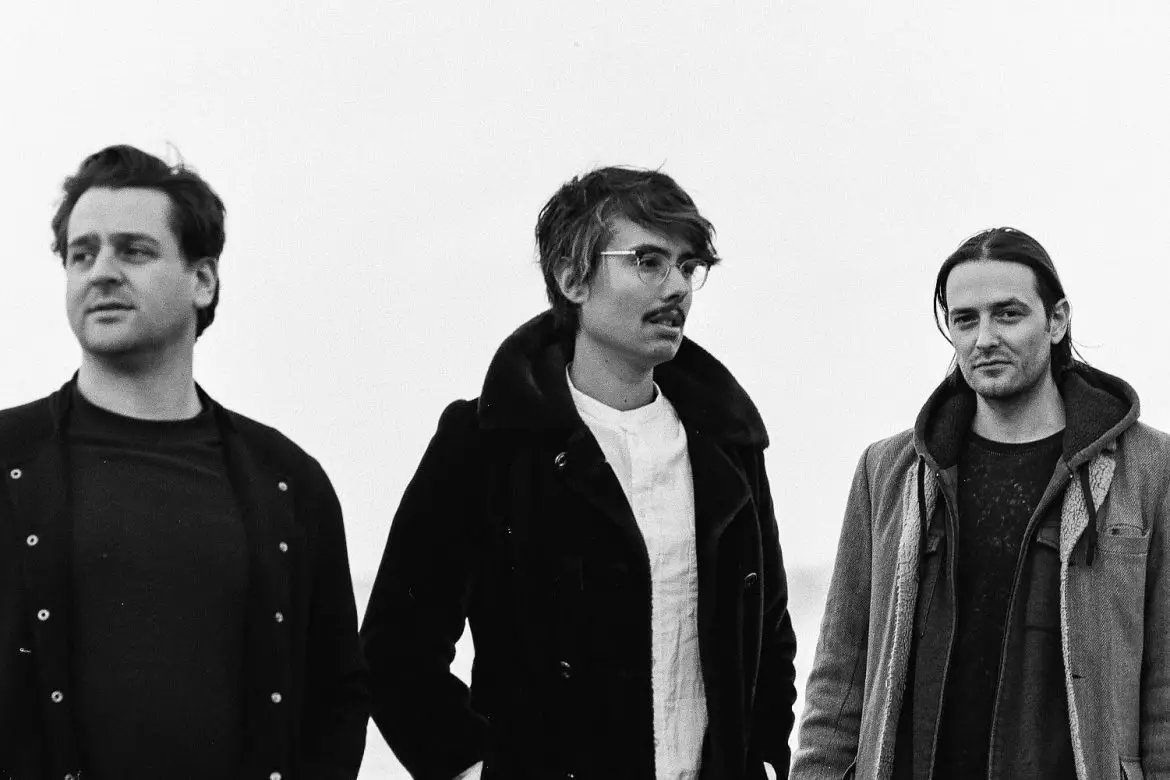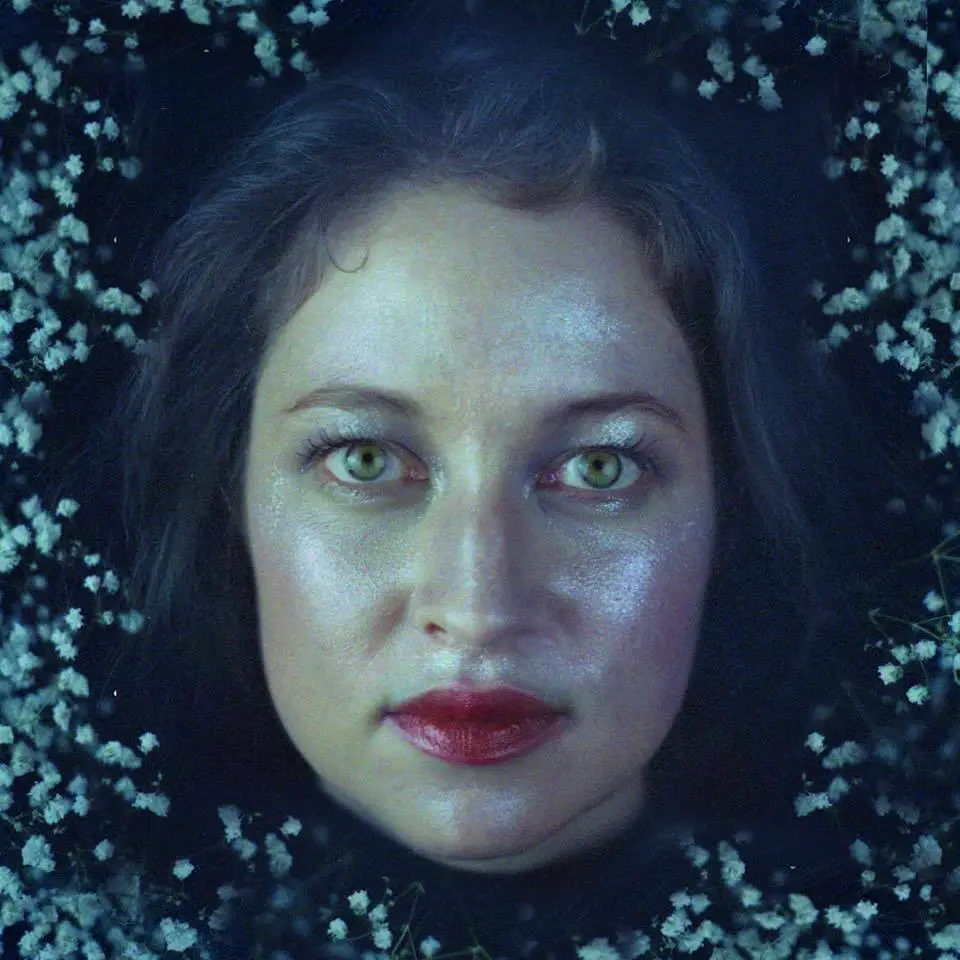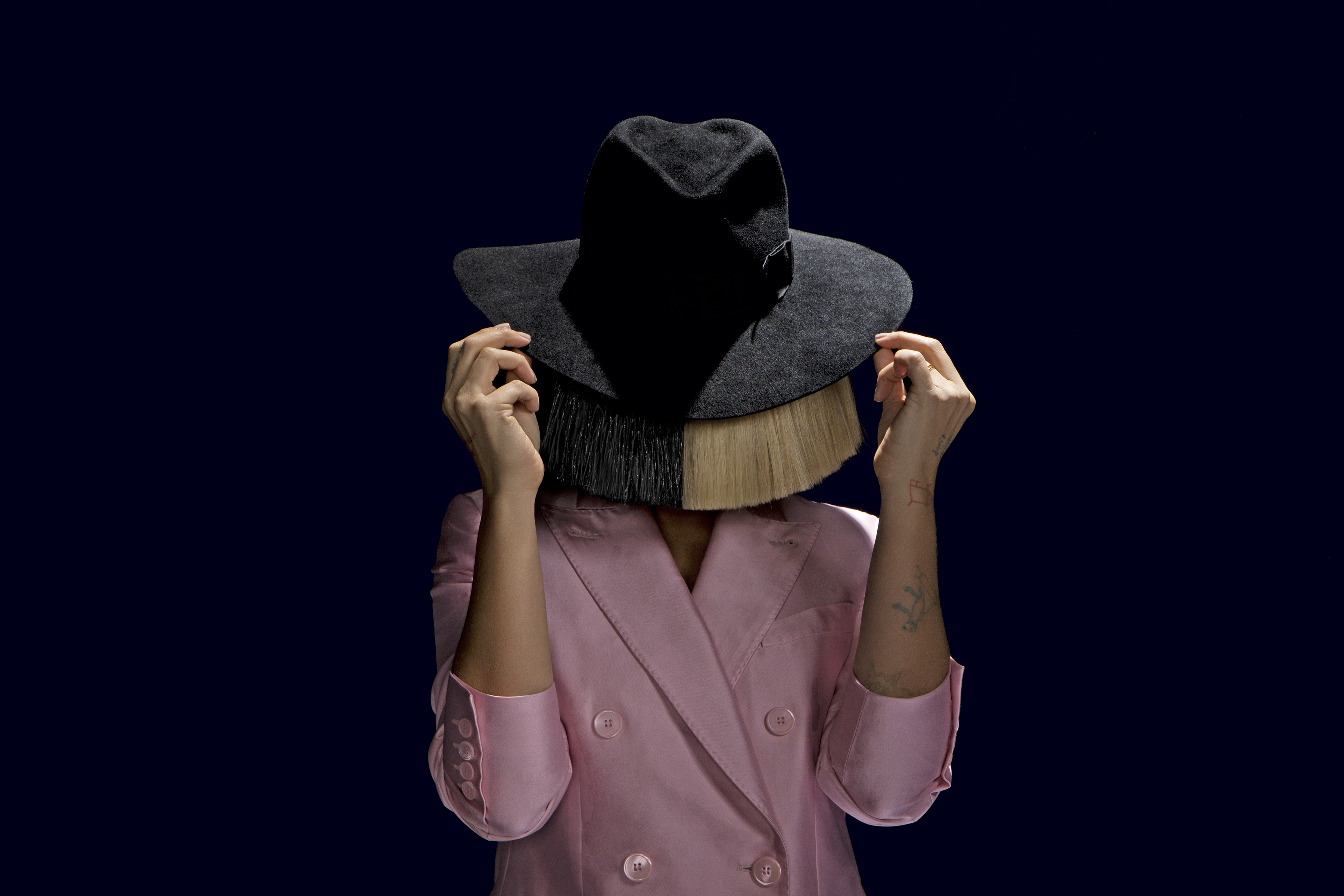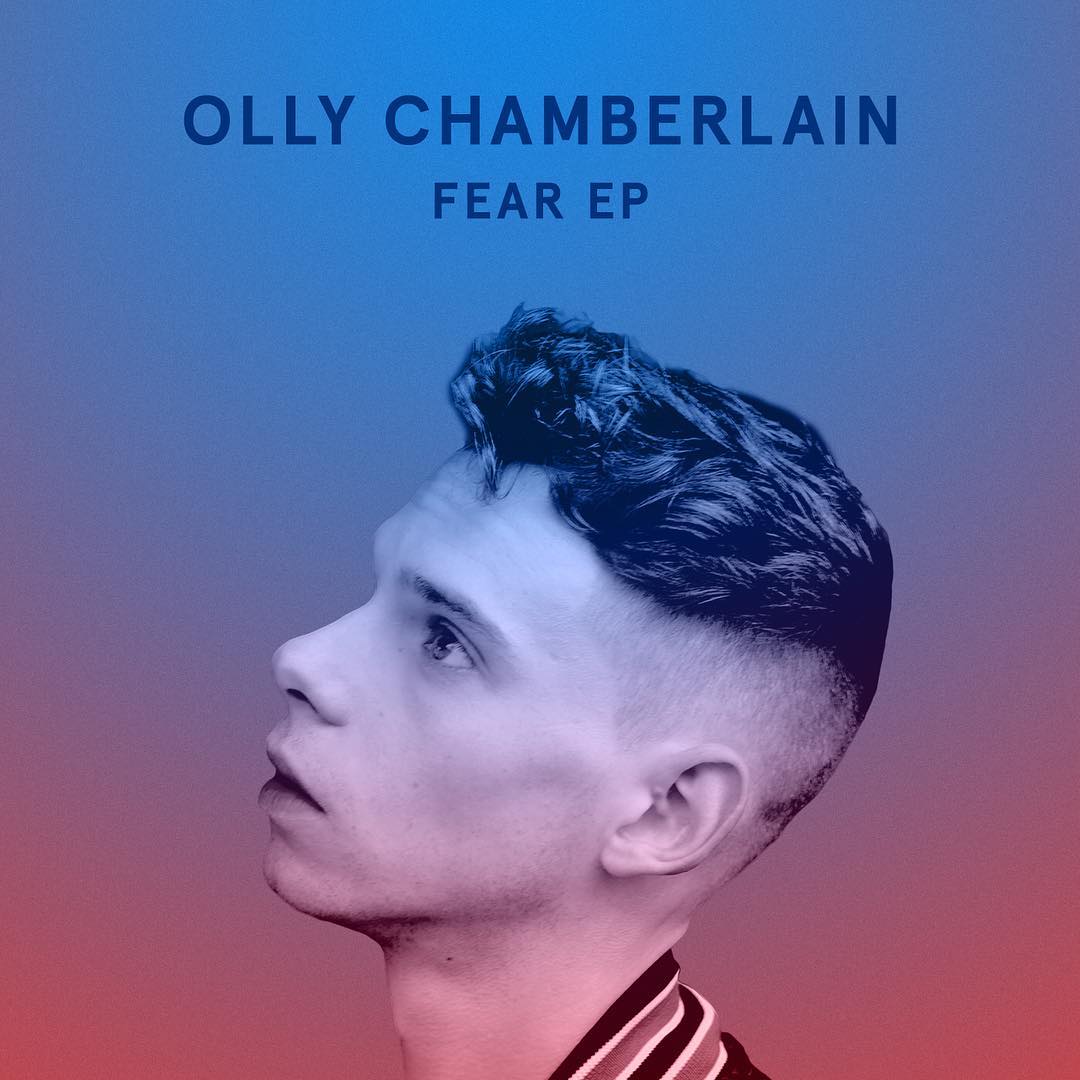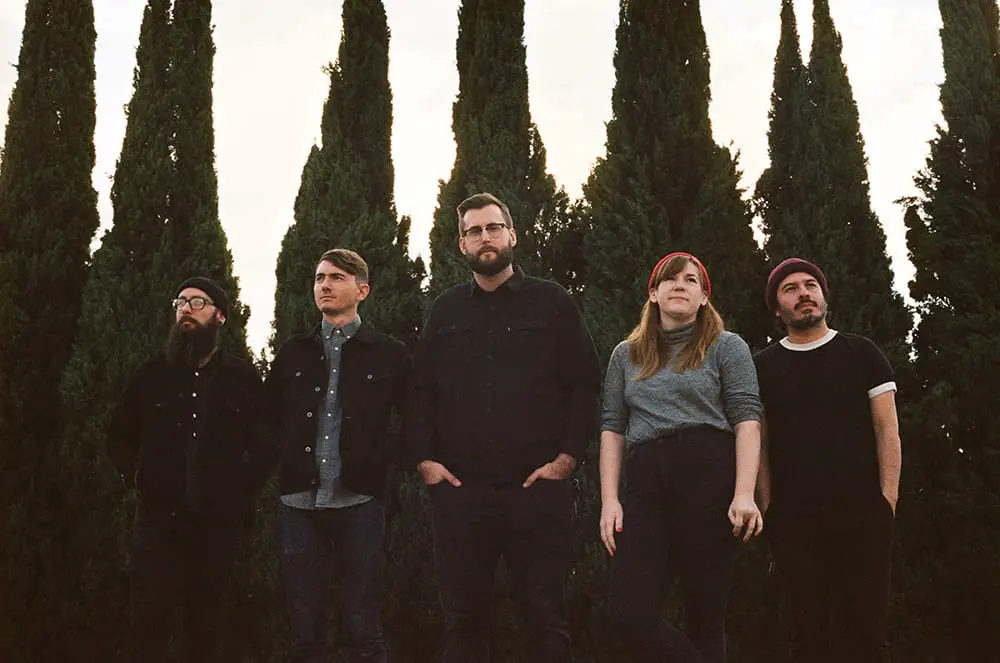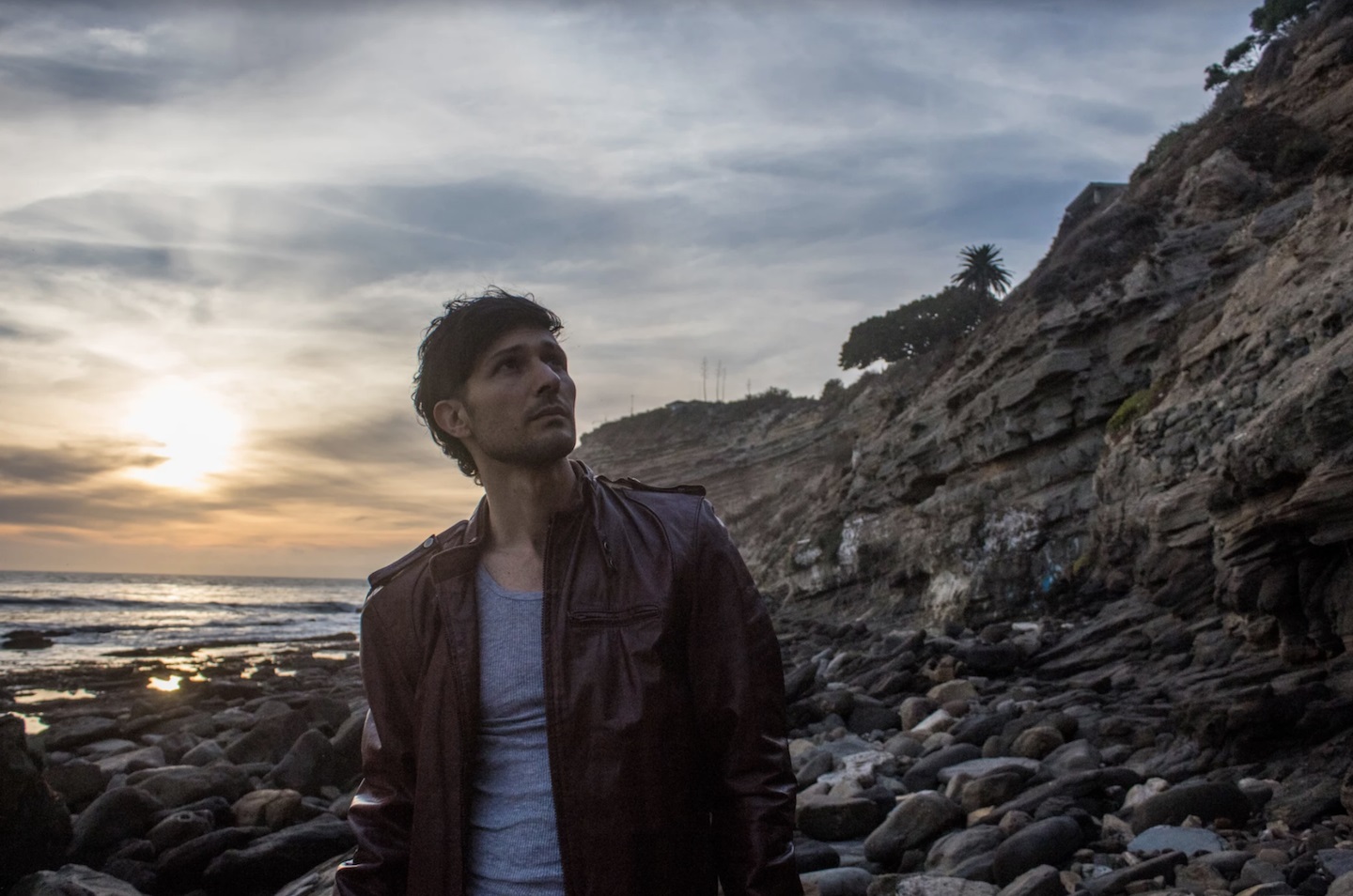Daniel Armbruster of Rochester rock band Joywave sits down with Atwood Magazine to discuss how the pandemic changed their music and what it means when the truth is in the user.
Stream: ‘Cleanse’ – Joywave
“I think we’ve ended up with a record about life and a reflection on mortality, but with our glass half full.
What happens when you put out an album three days before a global shutdown?
Looking at your latest release cycle arriving dead in the water, you might feel personally victimized by the sudden halt of life as we know it. Unfortunately, that’s exactly what happened to Joywave, the indie rock stars behind hits like “Destruction” and “Tongues” as well as their unforgettable team-up with Big Data “Dangerous.” Their album Possession shipped into the void, and whatever momentum they might have gained from it vanished in a “two weeks to flatten the curve” that stretched into years.
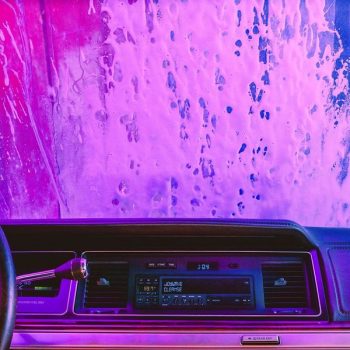
With the Omicron variant on the decline (fingers crossed), it seems we are finally getting a reprieve. Barring any more variants (again, fingers crossed), we can peek our heads outside and notice the gears start to turn once again. It looks a lot like the world we left in March 2020, yet its façade takes on an uncanny valley feel. So much has changed, even we aren’t as we remember ourselves. Whether that change is passive or intentional though is up to us. We can choose to cleanse ourselves of everything that hasn’t served us.
As the pandemic dragged on the band’s perspective transformed. “I quickly mentally shifted to realizing a once in a lifetime thing was happening,” lead singer Daniel Armbruster recalls. “My silly little record didn’t matter. It’s not personal, and I lost basically the least of anybody.” All that time away from the world looking at the same four walls led to a looking in view. They doubled down and dove into their music with renewed vigor.
Almost two years later, we are greeted with the fruits of their labors, their fourth, aptly titled album Cleanse.
Immediately the record sets itself apart from the rest of Joywave’s discography. Their trademark blend of garage rock fundamentals and alt-dance loops is as present as ever, but this time a certain cohesion stitches it all together. Fittingly enough, they always laced cyber-dystopian cautionary tales into their darker thread of indietronica. Here though, the bleak outlook yields patches of light like a shroud held up to the sun.
“The songs of Cleanse are the words of encouragement and occasional cautions that I would want to share with you if this was the last time we spoke,” said Armbruster. The darkness pervades, but the shared human experience and camaraderie can shepherd us through.
Cleanse starts out on a rather bleak note, but every deep clean begins in the muck.
When the truth’s in the user, we’ve all lost the future
A timeline
Darker than the one I was dealing with the last time
No help, no help
The world’s gone crazy, it’s on something lately
No help, no help
Just pray for the reboot
As desolate as it sounds though, the song is one of the more mellow and approachable in their discography. An ambling beat and propulsive beat invite every head in the room to bob, while a heavily distorted guitar calls out from the ether, perhaps as lost as the narrator. Maybe, it suggests, just maybe we can dance our way through one two-step at a time.
“We ask, “What is the way out of this? I have no idea,” explains Armbruster. “And thank God it’s not on me to find the way out, but it’s saying that whatever we as a society or humanity decide is necessary, cool, I’m in. I hope I get to play some role.”
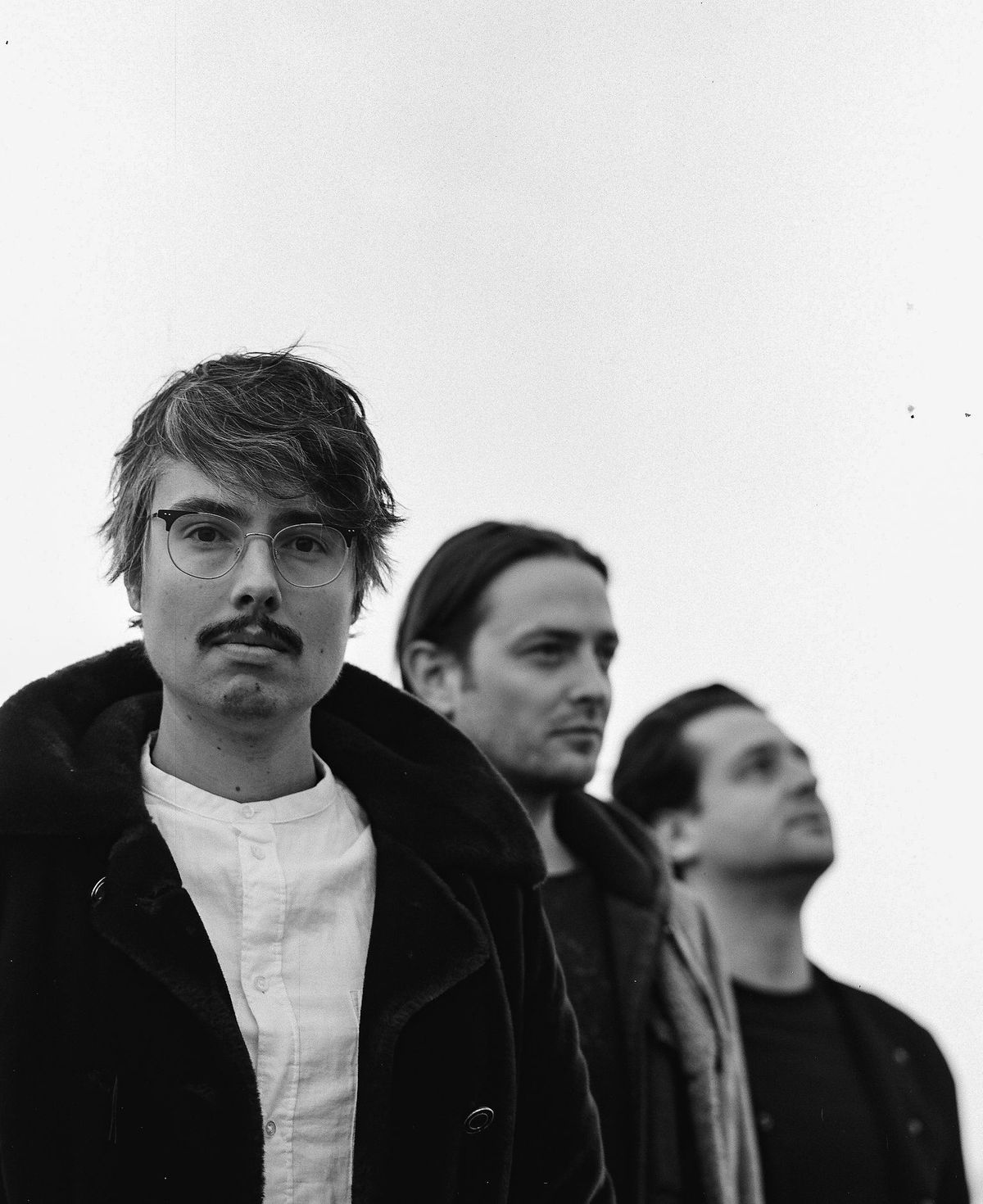
The rest of Cleanse passes in a breeze, moving from one meditation to the next with the ease of a winding stream, albeit one that sometimes portends the end times. “Buy American” bounces on a carefree beat while reveling in post-self consumerism. “After Coffee” reflects on how the mundanity of our lives can become a prison, the simple comforts of eating cereal and playing Nintendo every day preventing us from leaping into something new. And of course, there’s closer “Have You Ever Lit a Year on Fire?” which hit a nerve for anyone who lived through 2020 (*shudder*).
The moment of deepest insight and hope though, comes through on the jangling “We Are All We Need.” Here Armbruster reveals that in isolating ourselves for our own protection, we shut out our greatest source of healing – each other.
I build a shell to insulate me
from the winter and the weight of the Earth
But I round it filtered out compassion,
always laughing takes a toll on your worth.
When it seems like the world is crashing down and we are powerless to stop it, keeping our sanity may be as simple as reaching for the person next to us.
Cleanse is the tightest, most expedient set of songs Joywave has released to date. By paring back in quarantine and going through the wash, they emerged with laser-sharp focus. It’s dance music for the paranoid freak, a commiseration for the demoralized masses crushed by runaway polarization. Joywave can’t help them forget their troubles, but they can provide a fitting soundtrack.
And with their first tour in two years kicking off next Saturday, it seems the reboot they prayed for is finally happening.
I imagined the band being this vehicle. We’ve been through so much over the past decade and this was a forced breather…. We went through that wash process and came out on the other side ready for whatever the next the next decade holds.
What does it hold for Joywave? Armbruster and I chatted about the next decade, beating back cynicism, and all things Cleanse for Atwood Magazine. Check out the full interview below!
Stream: “Every Window Is A Mirror” – Joywave
A CONVERSATION WITH JOYWAVE

Atwood Magazine: I think the first time you guys came to my attention was back in 2014. You opened for RAC down in Anaheim. That was the first time I ever saw or heard of you. Then literal days later, I saw you headline School Night at Bardot.
Daniel Armbruster: That is amazing. I love that. That’s pretty early. That RAC tour that we did was the first time we’d been gone longer than a few days. That was our first big, long run. And we were we were first of three in clubs. Pretty wild.
And here we are. Eight years and a pandemic later.
Daniel Armbruster: And on record four.
And before we talk about record four, I want to back up a little bit briefly discuss Possession, which was released literal days before the lockdown. What was it like to watch the world shutter right at the brink of your latest creative cycle?
Daniel Armbruster: It felt like I was personally victimized by the virus for 36 hours until I realized people were dying. My silly little record didn’t matter. It’s not personal, and I lost basically the least of anybody. I quickly mentally shifted to realizing a once in a lifetime thing was happening. When a war breaks out, whatever you did before is like, “Oh, that was cute.” Today’s about surviving.
This changed things for a lot of artists. How did the onset of COVID-19 change your approach to conceptualizing your music?
Daniel Armbruster: I tend to go to music when things don’t make sense in my life, whether it’s personal, or on TV and exterior forces. So, I just doubled down. Up until Cleanse, we approached our albums by taking the 40 songs that I wrote over the past year or two years, and we went through them. This record is more of a snapshot of this period of time than any previous record we’ve done. There were a couple of things I was pulling from that I had started previously, but for the most part it was only these 10 songs.
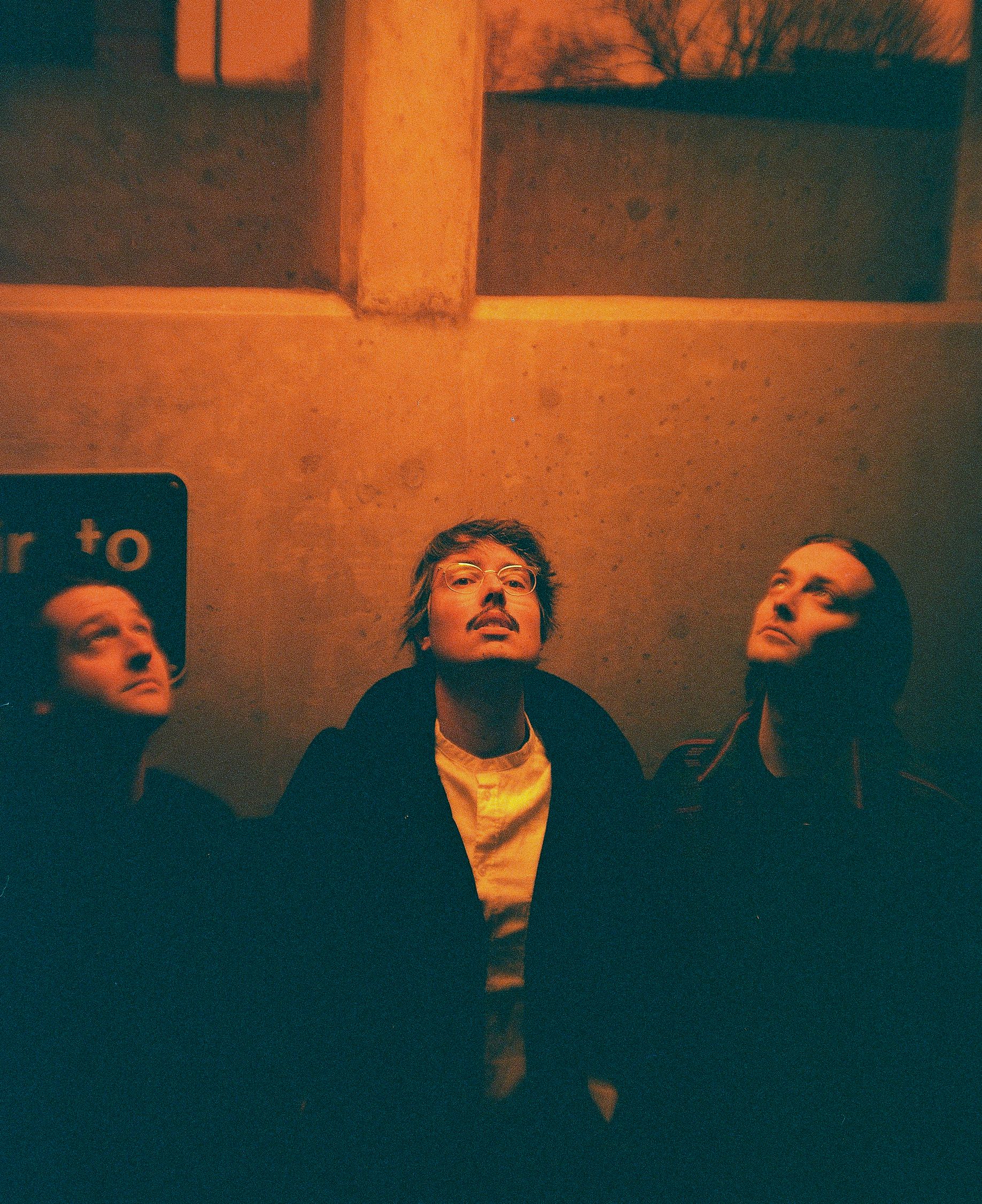
And now we have Cleanse. You said that the songs of Cleanse were ''the words of encouragement and occasional cautions that I would want to share with you if this was the last time we spoke.'' If you were to boil all that down, what kind of messages did you want to share with the world at that time?
Daniel Armbruster: I would want people to know that ultimately, I feel really fortunate for the lives that we’ve been able to have. There were a lot of things previously that I didn’t appreciate. I’d sleep for two hours and have to catch a flight or something. I was like, “This sucks, I’m so tired. I don’t want to travel.” We’ve been driving all day, and I have to jump on stage and then get back in the bus or van and go to next city. I’d be really burnt out.
But after having your entire calendar wiped clean for a year? Music has taken me to all of these amazing places that I absolutely never would have gone. It has led me to meet all sorts of people who are different than me who I never would have met. If our music career had not become what it is now, I would still be living within a one-mile radius of my childhood home never having left. We all do still live in Rochester because we love it here and this is where our families are, but I also feel fortunate and like I have this unique perspective very few people have. I think we’ve ended up with a record about life and a reflection on mortality, but with our glass half full, whereas our previous records are more so from a place of complaint.
I want to dive deeper into this record. You kick things off on a really dystopian note in ''Pray for the Reboot.'' Right away, you say, ''When the truths in the user, we've lost the future.'' What does that mean to you?
Daniel Armbruster: I don’t know if you have used social media recently, but it’s very bad. And a lot of people are getting their information from it. It’s a bleak way to open the record coming off of shipping Possession into the void because of the way things were. That album asked people to zoom out, see the big picture, and not get sucked into all the polarization that is like part of our culture, but it got so much worse. People are dying from political polarization now, not believing basic scientific principles, or that a vaccine could save your life. It’s just so frustrating. I think that “Pray for the Reboot” is kind of agnostic about it. We ask, “What is the way out of this? I have no idea.” And thank God it’s not on me to find the way out, but it’s saying that whatever we as a society or humanity decide is necessary, cool, I’m in. I hope I get to play some role. I’ve always thought I’m essentially a court jester. I dance around on stage, and I hope you like what you see. That’s the extent of what I provide. Hopefully the songs made people think and steer them in a direction where it positively impacts their lives. I’m not providing food for people or teaching the next generation. My impact is very indirect, you know?
We went through that wash process and come out on the other side ready for whatever the next the next decade holds.
I love the mantra in ''Cyn City 2000',' ''I don't want to be cynical.'' I think that's a great extrapolation on what you're talking about. It's very easy to be cynical in a world that looks so pessimistic and overwhelming. Do you think that there's a key to not getting swallowed by our own cynicism when this is all that we're dealing with?
Daniel Armbruster: I think it’s a conscious decision that you have to make. When people are cynical, that’s a really logical choice. Everything is bad. I was a history major in college. So sometimes I’m looking at things through a lens that’s maybe a little bit longer than a lot of people. I’m looking at it and going, “Wow! It’s awesome that I wasn’t drafted into the Vietnam War and I’m able to do the thing that I really love.” Or go back further. There are thousands of years of human history that I could have been born into where the objective was to find enough food to make it to the next day. That obviously still happens on Earth, but I’m so fortunate and blessed not be in that situation. So even though things suck right now, you can point to so many times in human history where things are worse than right now. And I think that’s an important thing to say.
I think that when we look back even just as short as five years ago, it's not really the truth that we're looking at. It's this crystallized, morphed version of the truth that seems truer to us because we're just really uncomfortable with where we are.
Daniel Armbruster: That’s the idea of conservativism in general, right? That things used to be better. It’s such a human thing that as we age, we think things used to be great. Have you watched the show “How To with John Wilson?” There’s an episode about the Mandela Effect. Are you familiar?
Where people think that something happened that didn't?
Daniel Armbruster: Correct. And they can’t admit that their memory may be flawed, that they’re remembering it wrong. Instead, they say, “No, I’m remembering it right and it used to be the other way. There must be a parallel dimension.” When the truth is in the user, we’ve lost the future, right? Like, that’s insane. There’s even this conspiracy where a lot of people say that the that the sun we have now is different because it’s whiter. And when people were younger, they remember the sun being more yellow. I want to go on the record and say I don’t think that is probably what has happened. But to your point about a crystallized pristine version of the past, absolutely.
I think that that brings us to the title itself. There's all of this negativity, all this polarization, it seems like the default is to be cynical, and yet, this could be a time that we cleanse. The past couple of years has been an opportunity to cleanse ourselves of a lot of things that weren't suiting us anymore. What were those things for you?
Daniel Armbruster: It’s the 10 songs on the record. It’s making active choices to try to be less cynical or try to see the glass half full.
Personally anothe rhuge one is the songs “We Are All We Need” and “Cyn City 2000.” They put together this message of comparison. Comparing yourself to others is something we naturally do but it’s the worst thing for your mental health. And as you move up the ladder, there’s always somebody else there. Eventually you’re just out of the atmosphere of the Earth. It’s a really tough thing to get ahold of but that’s what I’ve been focusing on through the pandemic, just being grateful for what I have.
It’s amazing that anybody cares about the music that I make. I took us so long to get this band off the ground, and I get to do it with my two best friends from high school. We’re still doing what we were doing as teenagers and now it’s our job.
That was kind of the idea around a lot of the artwork for the record. I worked in a carwash as a teenager. It was terrible, but we all became friends during that era of my life. The car on the cover is similar to the 1980s sedan that my grandma passed down to me when I turned 16. I imagined the band being this vehicle. We’ve been through so much over the past decade and this was a forced breather. I feel like we took advantage of it to make something that felt really fresh to us versus like the rest of our catalog. We went through that wash process and come out on the other side ready for whatever the next the next decade holds.
What is up next for y'all? What can we expect from Joywave in 2022?
Daniel Armbruster: The Cleanse Tour starts in a couple of weeks. I hope it’s a positive experience, but not a test positive experience. We have not gone on tour since the pandemic, just been a few one-off outdoor festivals, but it seems like the timing is feeling pretty good. We’re all boosted, and it seems like the cases are coming back down. Beyond that, there’ve been some collaborative tracks that I’ve worked on during the pandemic that I’d love to put out. I also really want to do a live record. I don’t know if we’re going to get to do it this year or not, but that was such a thing for artists historically that I feel has been mostly forgotten. The live experience is such an entry point to our band. Joywave as a whole isn’t necessarily the studio album.
For fans of our Tunes & Tumblers podcast, how would you describe the sound of Cleanse as a drink, alcoholic or not?
Daniel Armbruster: There’s a delightful restaurant and cocktail bar in Rochester, New York called Good Luck that is consistently on Top 10 lists of best cocktail bars in America. I do not drink alcohol anymore, but they have a Ginger Tonic that’s really simple (gin, ginger syrup and soda water basically) but it’s also alive and very refreshing.
— —
:: purchase/stream Cleanse here ::
Stream: “We Are All We Need” – Joywave
— — — —

Connect to Joywave on
Facebook, Twitter, Instagram
Discover new music on Atwood Magazine
? © JOYWAVE 2022
:: Stream Joywave ::

